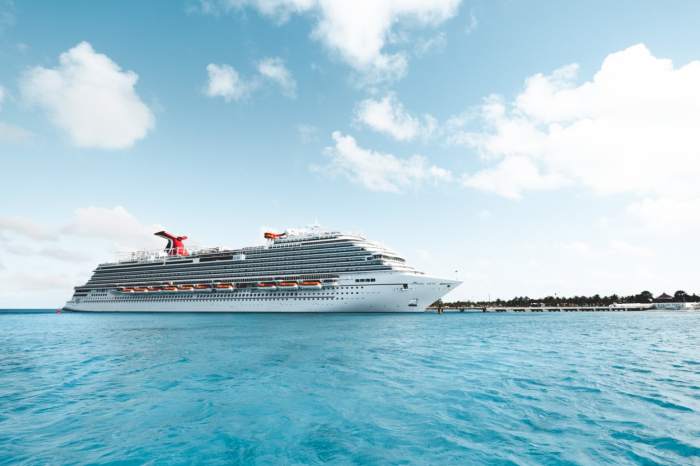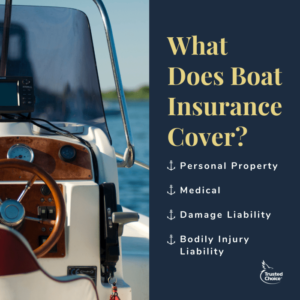
Best travel insurance plans 2025 are essential for globetrotters seeking peace of mind while exploring new horizons. With the ever-changing landscape of travel, it’s crucial to be equipped with the right insurance that protects against unforeseen events like trip cancellations, medical emergencies, and lost belongings.
This guide will walk you through the key features to consider when choosing a plan, compare top providers, and discuss vital elements such as coverage limits and deductibles, ensuring that you make an informed decision for your next adventure.
Best Travel Insurance Plans for 2025

As we step into 2025, travelers are increasingly aware of the importance of travel insurance. The right travel insurance plan can safeguard against unexpected events that could disrupt your journey, such as medical emergencies, trip cancellations, or lost luggage. With a plethora of options available, it’s essential to know what features to prioritize and how different providers measure up to ensure you select the best coverage for your adventures.When exploring travel insurance plans, it’s crucial to identify key features that distinguish the best providers.
A comprehensive travel insurance policy should include coverage for medical expenses, trip cancellations, and personal liability. Furthermore, understanding the coverage limits and deductibles is vital, as these elements determine the extent of financial protection you will receive.
Key Features of Travel Insurance Plans
The best travel insurance plans typically share common features that enhance their reliability and effectiveness. Here are the top features to look for:
- Medical Coverage: This is the cornerstone of any travel insurance policy. Look for plans offering high medical coverage limits to ensure you’re protected against hefty health care costs abroad.
- Trip Cancellation and Interruption Coverage: This feature is essential in case you need to cancel or cut short your trip due to unforeseen circumstances, such as illness or emergencies.
- Coverage for Lost or Delayed Luggage: Policies should compensate for lost, stolen, or delayed baggage, providing peace of mind during your travels.
- Emergency Evacuation Coverage: This covers the costs associated with emergency transportation to the nearest medical facility, which can be critical in remote areas.
- 24/7 Assistance Services: Reliable providers offer round-the-clock support to assist with emergencies, claims, or any travel-related inquiries.
Comparative Analysis of Travel Insurance Providers
When comparing travel insurance providers, consider their offerings, customer reviews, and claims processing efficiency. Here’s a brief overview of notable travel insurance providers for 2025:
- Allianz Global Assistance: Known for extensive medical coverage and a user-friendly claims process, Allianz offers various plans tailored to different traveler needs.
- Travel Guard: With a strong reputation for excellent customer service and optional add-ons, Travel Guard provides flexible options catering to specific travel scenarios.
- AXA Assistance USA: AXA stands out for its comprehensive coverage and value-added services, making it a reliable option for both leisure and business travelers.
- World Nomads: Ideal for adventurous travelers, World Nomads offers coverage for a wide range of sports and activities, along with a simple online claim process.
- InsureMyTrip: A comparison platform that allows travelers to evaluate multiple plans side-by-side, helping to find the best coverage at competitive prices.
Understanding Coverage Limits and Deductibles
Coverage limits and deductibles play a significant role in determining how much financial protection you receive. Coverage limits refer to the maximum amount an insurer will pay for a specific claim or for all claims combined. It’s important to choose plans with adequate limits that reflect the potential costs you might incur while traveling.Deductibles are the amounts you must pay out of pocket before your insurance coverage kicks in.
Opting for a higher deductible typically results in lower premiums, but it can lead to unexpected expenses during a claim. Thus, when selecting a travel insurance plan, carefully evaluate how coverage limits and deductibles align with your travel plans and potential risks.
Understanding the balance between coverage limits and deductibles is essential to ensure you are adequately protected while traveling.
Understanding Other Insurance Types
Navigating the world of insurance can be overwhelming, but understanding various types is crucial for comprehensive coverage. Beyond travel insurance, several other policies can protect you in different aspects of life. This section delves into the significance of pet insurance, supplemental insurance, and umbrella insurance, highlighting what they cover and their benefits.
Pet Insurance
Pet insurance is an essential form of coverage that helps mitigate the costs of veterinary care for your beloved furry companions. It typically covers a range of medical expenses, ensuring that you can provide the best care for your pets without financial strain. Most plans offer coverage for:
- Accidents and Injuries: This includes treatment for fractures, bite wounds, and other emergencies.
- Illnesses: Coverage for common health issues like infections, allergies, and chronic illnesses.
- Preventive Care: Some plans include vaccinations, routine check-ups, and dental care, promoting overall health.
- Specialty Care: Coverage may extend to treatments from specialists, such as oncologists or orthopedic surgeons.
Pet insurance not only alleviates financial burdens but also ensures that you can make healthcare decisions based on your pet’s needs rather than costs.
Supplemental Insurance
Supplemental insurance is designed to complement your primary health insurance policy, filling gaps in coverage and helping manage out-of-pocket expenses. This type of insurance can be especially beneficial for those with high deductible plans or limited coverage. Key benefits include:
- Reduced Medical Bills: Supplemental insurance can cover costs that your primary plan does not, such as copayments, deductibles, and coinsurance.
- Income Protection: Some policies offer cash benefits that can help cover lost wages during illness or injury.
- Broader Coverage Options: Plans might include coverage for critical illnesses, accidents, or hospital stays that your primary insurance lacks.
By providing additional financial support, supplemental insurance ensures you have access to necessary medical services without the burden of high costs.
Umbrella Insurance
Umbrella insurance serves as a safety net, providing additional liability coverage above and beyond your existing policies. This type of insurance is particularly valuable in protecting against significant financial losses due to lawsuits or claims. Key aspects include:
- Enhanced Liability Coverage: Umbrella policies typically start at $1 million in coverage, providing extra protection against claims that exceed your standard policy limits.
- Personal Liability Protection: This includes coverage for incidents like personal injury, property damage, and even defamation.
- Worldwide Coverage: Umbrella insurance usually provides coverage for incidents occurring anywhere in the world, offering peace of mind while traveling.
Umbrella insurance effectively protects your assets and future earnings, making it a prudent choice for those at higher risk of facing lawsuits or significant claims.
Specialized Insurance for Travelers
Travelers often require specific insurance types that cater to their unique needs, especially when embarking on adventures that involve different modes of transportation or activities. Specialized insurance can provide peace of mind and financial protection tailored to the individual traveler’s circumstances. From vision insurance that suits frequent flyers to watercraft insurance for boating enthusiasts, understanding these options is essential.
Vision Insurance Options for Frequent Travelers
For frequent travelers, maintaining optimal vision health can be a challenge, especially when crossing time zones and experiencing varied climates. Vision insurance can help cover routine eye care and unexpected optical needs while on the road. Here are some key options to consider:
- Comprehensive Vision Plans: These often cover eye exams, glasses, and contact lenses. They are beneficial for those who rely on corrective lenses while traveling.
- Discount Vision Plans: Offering lower premiums, these plans provide discounted rates for eye care services and products but may have limited coverage.
- Travel-Specific Vision Coverage: Some insurers offer plans that include benefits like emergency eye care or the replacement of lost glasses while abroad.
Integrating vision coverage into travel insurance ensures that you can address eye-related issues promptly, regardless of location.
Necessity of Watercraft Insurance for Travelers
Travelers who enjoy boating or yachting should consider watercraft insurance as an essential part of their travel plans. This type of insurance not only protects the boat itself but also covers liability and potential damages incurred while on the water. The following points highlight the importance of having watercraft insurance:
- Liability Coverage: Protects against legal claims resulting from accidents involving other boats or injuries to passengers.
- Physical Damage Protection: Covers repairs or replacement of the watercraft in case of theft, vandalism, or accidents.
- Environmental Damage Protection: Offers coverage for expenses related to pollution or damage to marine life resulting from a boating incident.
Having watercraft insurance is crucial as it safeguards both the traveler and the environment, ensuring a worry-free experience on the water.
Integration of Travel Insurance with Other Types of Insurance
Travel insurance functions best when integrated with other types of insurance, creating a comprehensive safety net for travelers. Here’s how it complements various coverage types:
- Health Insurance: Basic health insurance may not cover international medical expenses. Travel insurance fills this gap by providing coverage for medical emergencies abroad.
- Homeowners or Renters Insurance: These plans often cover personal property when traveling, but travel insurance can enhance protection for lost or stolen items.
- Auto Insurance: If renting a car while traveling, having travel insurance can cover excess costs incurred due to accidents, which standard auto insurance might not fully address.
Integrating travel insurance with other insurance types ensures that travelers have a cohesive plan that addresses various scenarios, enhancing overall security during their journeys.
Wrap-Up

In summary, selecting the best travel insurance plans for 2025 is all about understanding your unique needs and the coverage options available. By considering factors like provider reputation, coverage limits, and supplemental policies, you can confidently travel knowing you’re well-protected against any travel mishap.
Common Queries
What should I look for in a travel insurance plan?
Look for coverage for trip cancellations, medical expenses, lost luggage, and 24/7 customer support.
Is travel insurance worth it?
Yes, travel insurance can save you from significant financial losses due to unexpected events during your trip.
Can I buy travel insurance after booking my trip?
Yes, but it’s best to purchase it as soon as you book to cover any issues that might arise before your trip.
Does travel insurance cover COVID-19 related issues?
Many plans offer coverage for COVID-19 cancellations or medical treatment, but it’s crucial to check specific policy details.
How do deductibles work in travel insurance?
A deductible is the amount you pay out-of-pocket before your insurance coverage kicks in; choosing a lower deductible can increase your premium.





